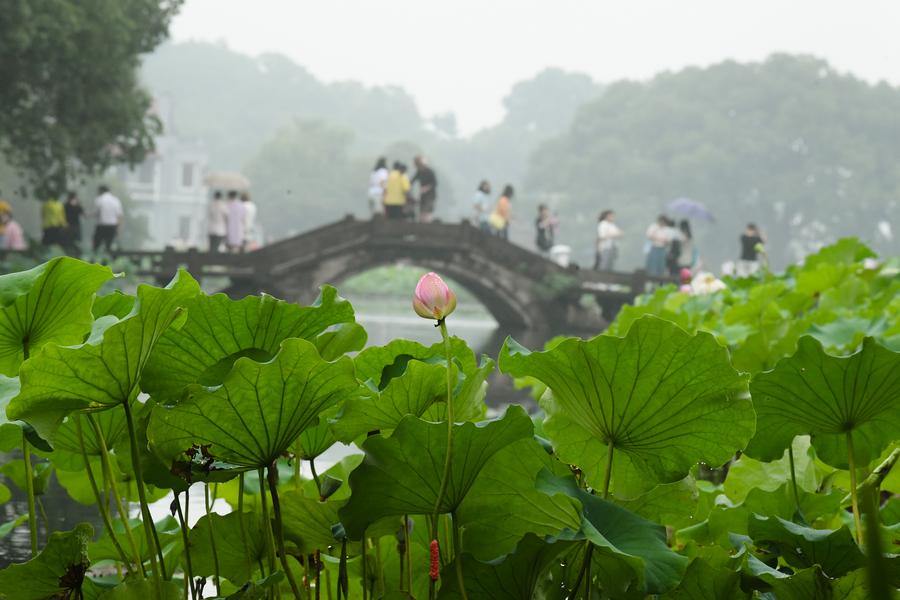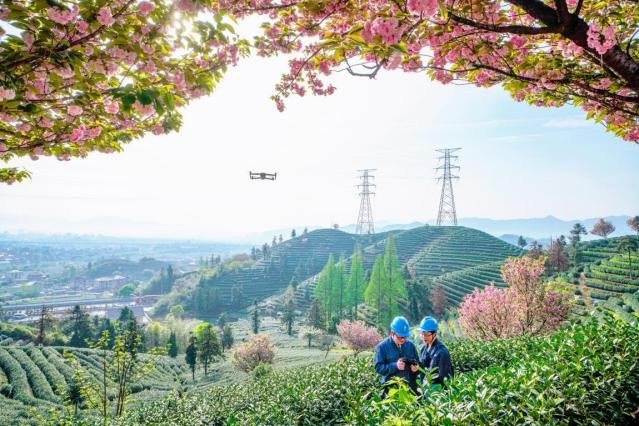Village galas in China are stage performances organized and carried out by Chinese villagers themselves to celebrate festivals, as a way to share their joyful feelings and best wishes.
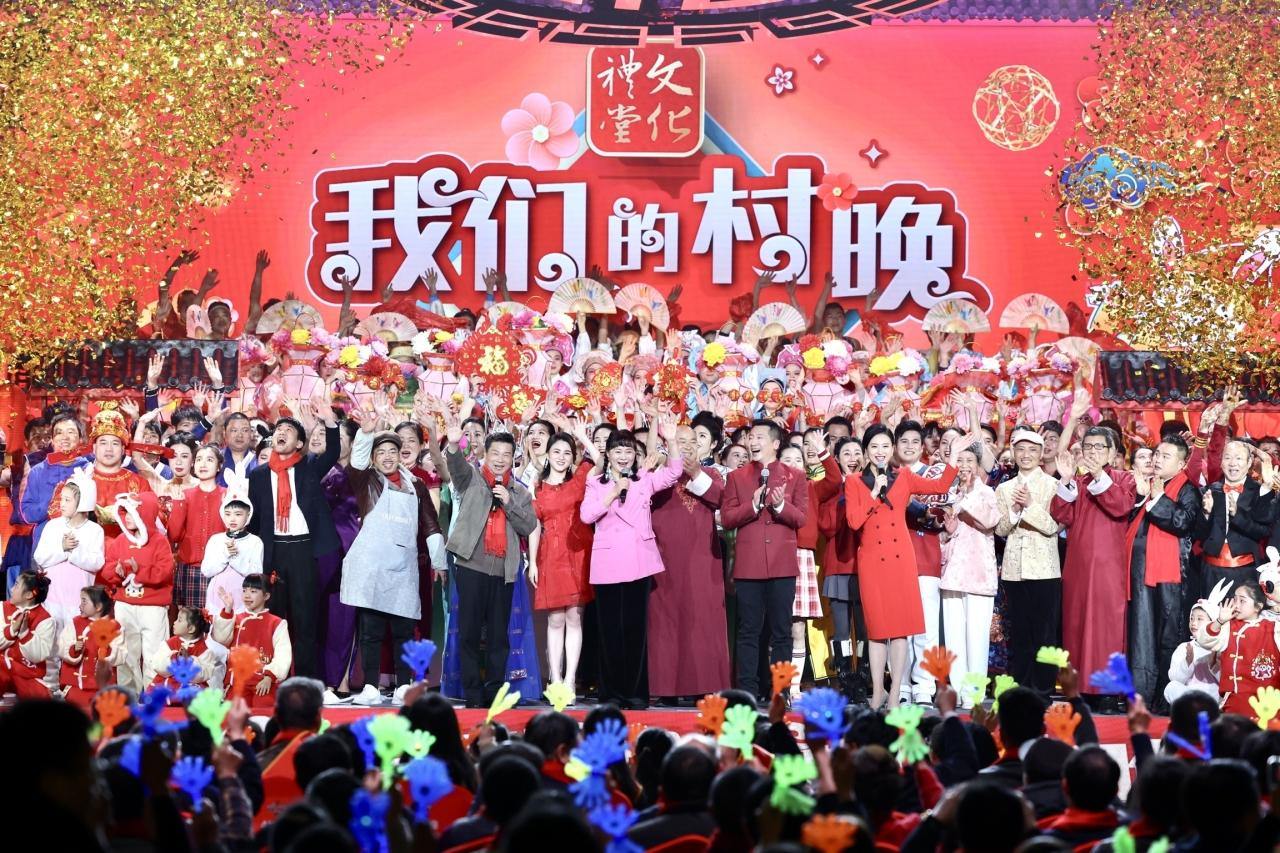
On the evening of February 5, the "Our Village Gala" program was held in Haiyan county, Jiaxing city. (Photo/Li Yidong)
As CGTN mentions in the article "2023 Spring Festival Gala public service ad: 'Village Gala for the Chinese New Year'", village galas usually use cinematic techniques to present the accents, folk music, local cuisine and homecoming feelings and record the real and exhilarating life of the rural people with the sound of singing and dancing, applause, talking and laughing.
Village galas are increasingly popular now in China during festival celebrations. According to Zhejiang Xuanchuan, the official public WeChat account of the Zhejiang Publicity Department, around the Spring Festival in 2020, a total of 11,364 village galas were held across Zhejiang. And in 2022, the “online village galas” attracted more than 100 million people watching online.
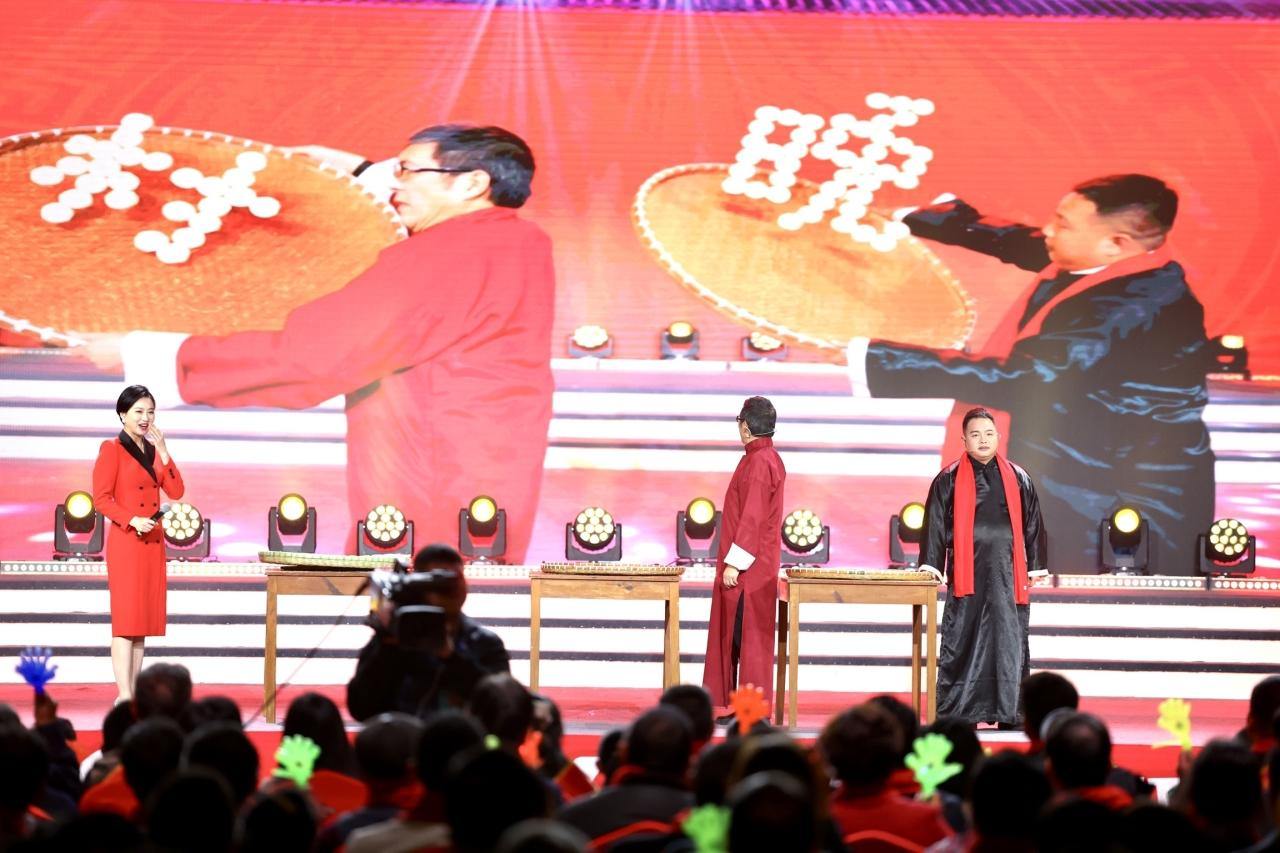
Traditional folk cultural performances at the village gala. (Photo/Li Yidong)
For the village galas, the stages will usually be set up in the fields and among the villagers. People are easy to get access to the space of the galas without hierarchy. In addition, the programs presented on the stages are usually inspired by villagers’ daily life, local folklore and traditional cultures, further tying people together with their shared cultural bonds.
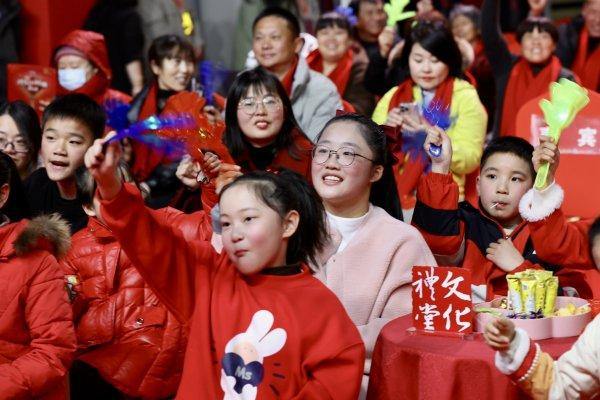
The audience were enjoying the performances at the village gala. (Photo/Li Yidong)
In such a shared scenario, local people are able to communicate with each other, send greetings to people they care about, and share festive vibes with neighbours.
Compared with traditional stage performances, each village gala is super “independent” and wholly organized by the local community. The “organizing committees” of the local community have the right to decide the personnel of the stages, the hosts, the programs and so forth. That is to say, the village galas are totally “owned” and "presented" by the villagers themselves.
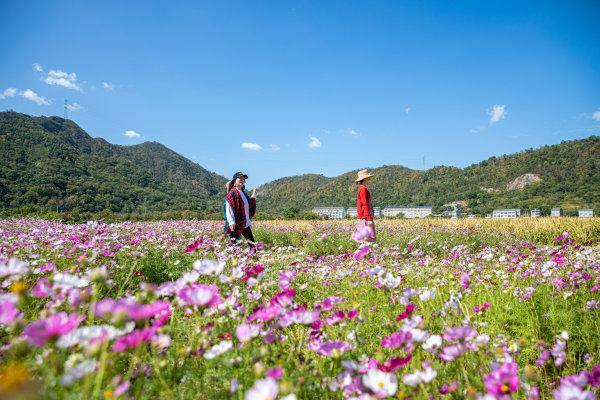
Beautiful flowers bloom in the fields in Wenling. (Photo/Xu Weijie)
When it comes to the rural space, there have aroused wide discussions on how it might be represented.
As the modernization and the growth of mega-cities continue to expand, ruralism is increasingly no longer been represented as a space which is underdeveloped and overlooked by the city-centred development approach.
Instead, the rural idyll has become something to which many people, perhaps a vision of a good place to live or as a repository of values.
The village galas portray Chinese people’s strong passion for their vernacular cultures. Through the lens of village galas, you will be able to observe the rural development and the cultural traditions of Chinese rural society.
Editor: Ye Ke
